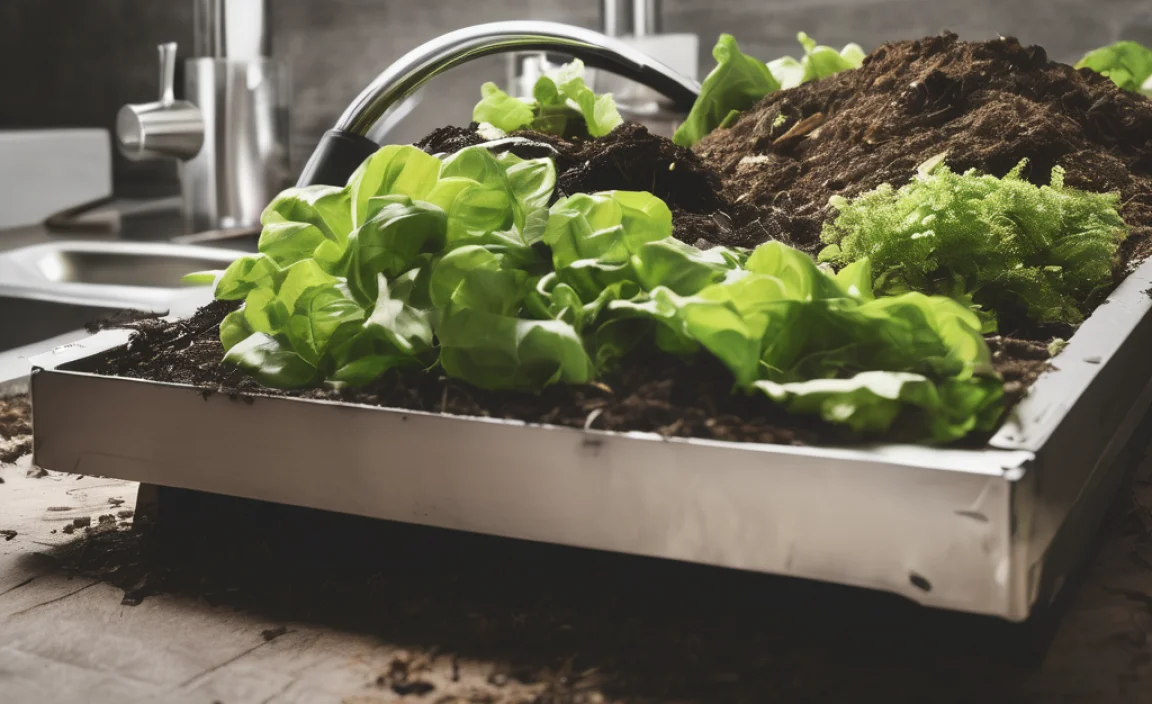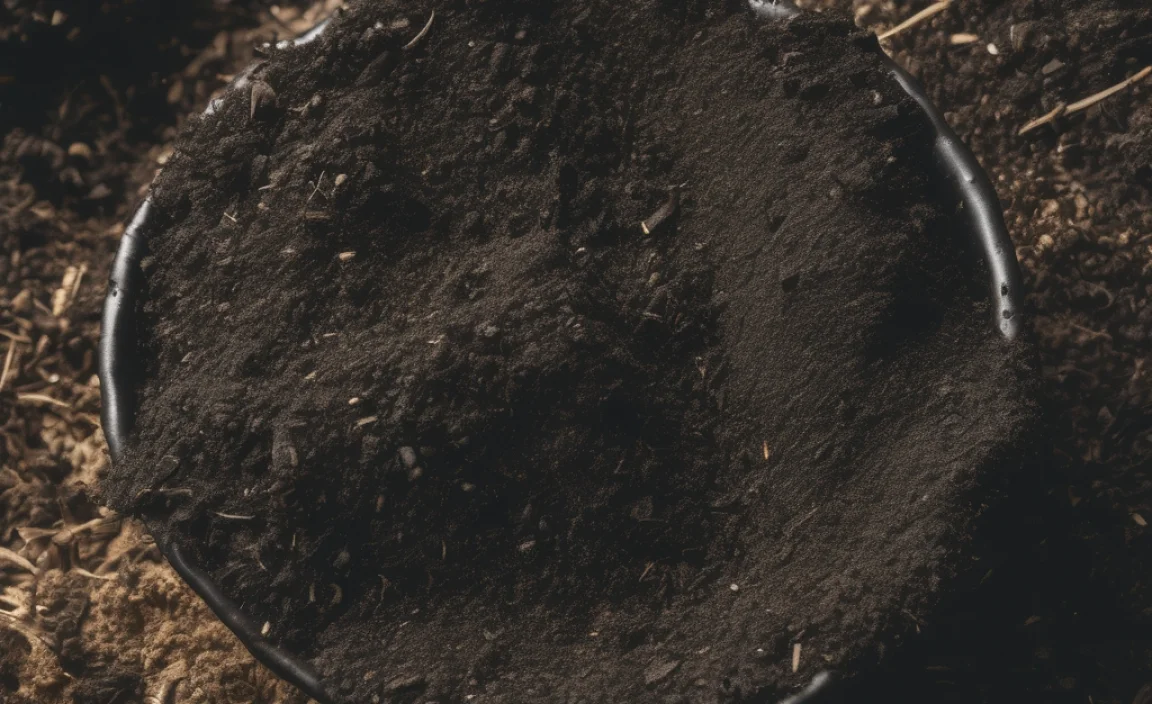Quick Summary: Need a new faucet installed? You’ve got a few options! For simple swaps, a general handyman might be perfect and save you some money. For more complex plumbing work, like moving pipes, hire a licensed plumber. They’ll ensure everything is up to code and working smoothly. Weigh the complexity of the job against the cost and expertise needed to make the best choice.
Is your old faucet dripping and driving you crazy? Or maybe you’re just ready for a stylish upgrade in your kitchen or bathroom. Figuring out who to call to get a water faucet installed can feel a bit confusing. Don’t worry, it’s simpler than you think! Many homeowners face this same decision, and we’re here to help you make the right choice.
In this guide, we’ll walk you through the different professionals who can handle faucet installation. We’ll cover the pros and cons of each, so you can pick the best fit for your needs and budget. Get ready to say goodbye to that leaky faucet and hello to a fresh, new look!
Who Can Install a Water Faucet?
Several types of professionals can install a water faucet. The best choice depends on the complexity of the job and your local regulations.
- Plumbers: Experts in all things plumbing, from fixing leaks to installing entire systems.
- Handymen/Handywomen: General home repair professionals who can handle many small to medium-sized jobs.
- General Contractors: Typically manage larger renovation projects but may also handle smaller plumbing tasks.
When to Hire a Plumber
A licensed plumber is your go-to for more complex faucet installations or when you need to ensure everything is up to code. Here are some situations where hiring a plumber is the best idea:
- Moving Plumbing Lines: If you’re changing the location of the faucet and need to move water pipes.
- Dealing with Old or Corroded Pipes: Older homes may have pipes that need replacing or are prone to issues.
- Installing a New Water Shut-Off Valve: If you don’t have a shut-off valve or it’s not working correctly.
- Complex Faucet Systems: Installing touchless faucets, or those with integrated water filters, can be more complicated.
- If Permits Are Required: Some areas require permits for plumbing work, and plumbers are familiar with this process.
Pros of Hiring a Plumber
- Expertise: Plumbers have extensive training and experience in all aspects of plumbing.
- Code Compliance: They ensure all work meets local plumbing codes and regulations.
- Warranty: Many plumbers offer warranties on their work, giving you peace of mind.
- Proper Tools: They have the right tools and equipment to handle any plumbing task.
- Problem Solving: They can quickly diagnose and fix any unexpected issues that arise.
Cons of Hiring a Plumber
- Cost: Plumbers generally charge more than handymen for faucet installation.
- Availability: They may be busy and harder to schedule for small jobs.
When to Hire a Handyman
A handyman (or handywoman) can be a more affordable option for simpler faucet replacements. They are suitable for straightforward installations where no changes to the existing plumbing are needed.
- Simple Faucet Replacement: Replacing an old faucet with a new one in the same location.
- No Plumbing Modifications: If you don’t need to move pipes or change any plumbing lines.
- Minor Repairs: Fixing a leaky faucet or replacing a worn-out part.
Pros of Hiring a Handyman
- Cost-Effective: Handymen typically charge less than licensed plumbers.
- Availability: They are often easier to schedule for smaller jobs.
- Versatility: They can handle a variety of home repairs beyond just faucet installation.
Cons of Hiring a Handyman
- Limited Expertise: They may not have the same level of plumbing knowledge as a licensed plumber.
- No Warranty: Many handymen don’t offer warranties on their work.
- Code Compliance: They may not be as familiar with local plumbing codes.
- Potential for Mistakes: If the job is more complex than it appears, they may not be equipped to handle it.
When to Hire a General Contractor
General contractors are typically involved in larger renovation projects. However, they might be an option if you’re doing a bigger remodel that includes faucet installation.
- Part of a Larger Project: If you’re remodeling your kitchen or bathroom.
- Coordinating Multiple Tasks: They can manage all aspects of the renovation, including plumbing.
Pros of Hiring a General Contractor
- Project Management: They can coordinate all aspects of the renovation.
- Access to Subcontractors: They often have relationships with plumbers and other tradespeople.
Cons of Hiring a General Contractor
- Cost: Hiring a general contractor can be more expensive than hiring a plumber or handyman directly.
- Overhead: They typically add a markup to the cost of subcontractors.
- May Not Be Necessary: For a simple faucet installation, a general contractor is usually overkill.
Factors to Consider Before Hiring
Before you decide who to hire, think about these factors:
- Complexity of the Job: Is it a simple swap or a more involved project?
- Your Budget: How much are you willing to spend on the installation?
- Local Regulations: Does your area require permits for plumbing work? Check with your local building department or municipality website.
- Your Comfort Level: Are you comfortable with a handyman, or do you prefer the expertise of a licensed plumber?
Cost Comparison
Here’s a general idea of what you can expect to pay for faucet installation, but keep in mind that prices can vary depending on your location and the specific job.
| Professional | Average Cost | Typical Jobs |
|---|---|---|
| Plumber | $150 – $450 | Complex installations, moving pipes, code compliance |
| Handyman | $80 – $200 | Simple replacements, minor repairs |
| General Contractor | Varies (part of a larger project) | Full renovations, coordinating multiple tasks |
Note: These are just average costs. Be sure to get quotes from multiple professionals to compare prices.
DIY Faucet Installation: Is It an Option?
If you’re comfortable with basic plumbing and DIY projects, you might consider installing the faucet yourself. Here’s what to think about:
Pros of DIY Faucet Installation
- Cost Savings: You’ll save on labor costs.
- Convenience: You can do it on your own schedule.
- Learning Experience: You’ll gain valuable home improvement skills.
Cons of DIY Faucet Installation
- Potential for Mistakes: If you’re not careful, you could damage pipes or cause leaks.
- Time Commitment: It may take longer than you expect, especially if you run into problems.
- No Warranty: You’re responsible for any issues that arise.
Tools You’ll Need for DIY Installation
- Basin wrench
- Adjustable wrench
- Plumber’s tape
- Putty knife
- Bucket
- Flashlight
- New faucet
Steps for DIY Faucet Installation
- Turn off the water supply: Locate the shut-off valves under the sink and turn them off. If you don’t have shut-off valves, turn off the main water supply to your house.
- Disconnect the old faucet: Use a basin wrench to loosen the nuts holding the faucet in place. Disconnect the water supply lines.
- Clean the sink: Remove any old putty or sealant from the sink surface.
- Install the new faucet: Follow the manufacturer’s instructions to install the new faucet. Apply plumber’s tape to the threads of the water supply lines.
- Connect the water supply lines: Attach the water supply lines to the new faucet.
- Turn on the water supply: Slowly turn on the shut-off valves and check for leaks.
Safety First! Always turn off the water supply before starting any plumbing work. If you’re not comfortable with any of these steps, it’s best to hire a professional.
How to Find a Reliable Professional
Finding the right person for the job is crucial. Here’s how to make sure you’re hiring someone trustworthy:
- Ask for Recommendations: Get referrals from friends, family, or neighbors.
- Read Online Reviews: Check review sites like Yelp, Google, and Angie’s List.
- Verify Credentials: Make sure the plumber is licensed and insured. You can usually verify this information on your state’s licensing board website.
- Get Multiple Quotes: Contact several professionals and get written estimates.
- Check References: Ask for references and follow up with them.
- Trust Your Gut: If something feels off, it’s okay to choose someone else.
Questions to Ask Before Hiring
Before you hire someone, ask these questions to ensure they’re the right fit for your project:
- Are you licensed and insured?
- How much experience do you have with faucet installation?
- Do you offer a warranty on your work?
- Can you provide references?
- How long will the installation take?
- What is your hourly rate or flat fee?
- Do you charge for travel time?
- Who will be performing the work?
- What happens if something goes wrong?
Understanding Plumbing Codes and Permits
Plumbing codes are in place to ensure the safety and quality of plumbing installations. Permits may be required for certain types of plumbing work. Here’s what you need to know:
- Plumbing Codes: These codes vary by location and cover everything from pipe materials to installation techniques.
- Permits: Some areas require permits for plumbing work, especially if you’re moving pipes or making significant changes to your plumbing system.
Check with your local building department to find out the specific plumbing codes and permit requirements in your area. A licensed plumber will be familiar with these regulations and can help you obtain any necessary permits.
Maintaining Your New Faucet
Once your new faucet is installed, proper maintenance can help it last longer and prevent problems.
- Clean Regularly: Wipe down the faucet with a soft cloth to remove water spots and soap scum.
- Check for Leaks: Periodically check around the base of the faucet and under the sink for leaks.
- Replace Worn Parts: If you notice any drips or leaks, replace worn-out parts like O-rings or cartridges.
- Avoid Harsh Cleaners: Use mild soap and water to clean the faucet. Avoid abrasive cleaners that can damage the finish.
FAQ About Faucet Installation
Do I need to turn off the water before replacing a faucet?
Yes! Always turn off the water supply to the faucet before starting any work. This prevents flooding and water damage.
Can I install a faucet myself, or should I hire a professional?
If you’re comfortable with basic plumbing and have the right tools, you can install a faucet yourself. But, if you’re unsure or the job is complex, hire a pro.
How much does it cost to have a plumber install a faucet?
The cost varies, but you can typically expect to pay between $150 and $450 for a plumber to install a faucet.
What is the difference between a plumber and a handyman?
A plumber is a licensed professional specializing in plumbing systems, while a handyman handles general home repairs. Plumbers have more extensive training and can handle complex plumbing tasks.
Do I need a permit to replace a faucet?
It depends on your local regulations. Simple faucet replacements usually don’t require a permit, but moving pipes or making significant changes might.
How long does it take to install a new faucet?
A simple faucet replacement can take as little as an hour. More complex installations may take longer.
What tools do I need to install a faucet?
You’ll need a basin wrench, adjustable wrench, plumber’s tape, putty knife, bucket, and flashlight.
Conclusion
Choosing the right professional to install your water faucet depends on the complexity of the job, your budget, and your comfort level. For simple replacements, a handyman can be a cost-effective option. For more complex plumbing work, a licensed plumber is the best choice. By considering these factors and doing your research, you can ensure a smooth and successful faucet installation. Now you’re ready to get that new faucet installed and enjoy a leak-free, stylish upgrade in your home!



